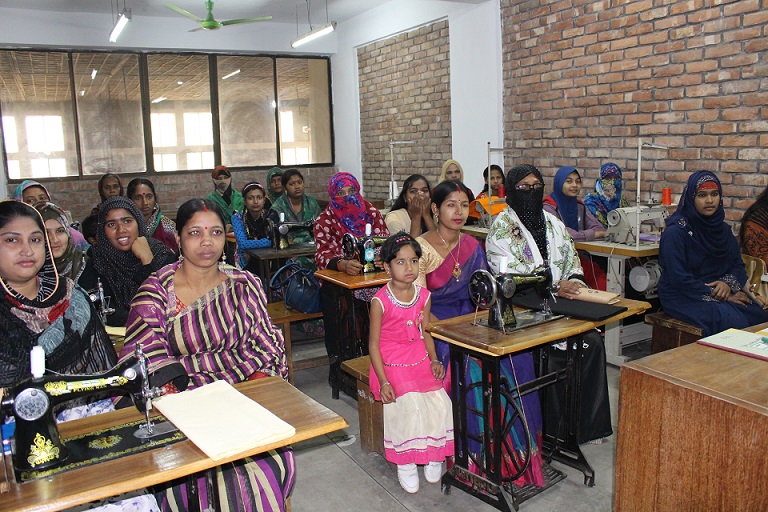Camille Chedid, President of the AEP in Lebanon: "wars have exacerbated poverty and division”

After the Israeli bombings against Hezbollah, more than 860,000 displaced persons in Lebanon have returned to their towns and villages since the 27 November ceasefire, according to the UN. But the situation on the ground remains precarious, as evidenced by Camille Chedid, President of Emmaus Asia and the Professional Mutual-Aid Association (AEP), an Emmaus group based in Beirut. Interview.
What is the current situation in your region and in Lebanon in general?
Camille Chedid: Even though a ceasefire has been established, the situation remains very challenging and bleak. Many villages have been destroyed, and thousands of families have had to flee. The problem is compounded by the Syrian refugee crisis: about 2 million Syrians have been living in Lebanon for over 12 years, putting enormous pressure on the country’s already fragile resources and infrastructure. The Lebanese people suffer from the failures of public services, such as electricity, water, and health care. The situation has become even more complicated as the war in Syria worsens.
Can you briefly remind us of the context of the conflict with Israel?
Lebanon has lived under Israeli occupation for many years, especially in the south of the country. Although Israel withdrew in 2000, the threat persists, with frequent attacks and provocations along the border. The 2006 war was particularly devastating, and Lebanon never fully recovered from its consequences. Today, the situation is still tense, with sporadic attacks, Israeli air strikes on targets in Lebanon and continuous threats to the region’s stability.
What are the implications of the war for the activities of the AEP?
The AEP helps beneficiaries throughout the country to start or develop their economic activities. The war has directly impacted our beneficiaries in the areas most affected by the bombings, and indirectly, it has had repercussions on all Lebanese citizens, paralyzing a large portion of economic activities. Our projects have been suspended or immensely slowed down, as many entrepreneurs have lost their property, and access to the resources necessary for continuing their work has been severely limited.
What emergency measures are the AEP and its allied organisation taking to help the affected populations?
Since the war began, the AEP has responded to the emergency by closely monitoring the situation of our beneficiaries, particularly by helping them find temporary housing and providing them with the necessities to survive, such as food, clothing and medical care. We have launched an emergency appeal to financially support the displaced families and help them meet their most urgent needs. In parallel, we have collaborated with other organisations to coordinate actions and resources.
What are the needs of your organisation and those it serves?
The needs are mainly financial, for covering the hospital bills, which have become extremely high, as well as for children’s schooling, medicine, and food. Many of our beneficiaries have lost their jobs or their source of income, and until they can resume their normal activities, these basic needs must be met to ensure their survival and dignity.
How is the fall of the Bashar al-Assad regime in Syria perceived in Lebanon and what are the consequences for your country?
The fall of the Bashar al-Assad regime is perceived as a relief for many Lebanese citizens. This is especially true for those who suffered under Syrian occupation, particularly during the years of civil war in Lebanon. Many Lebanese have lived under the oppression of an authoritarian regime, supported by pro-Syrian militias. However, the departure of the Syrian regime does not mean that Lebanon is spared from new tensions. The Syrian refugees, who continue to pour in, are putting enormous pressure on the country’s infrastructure, and there is growing concern about the possibility of increased instability in Syria which, given the close ties between the two countries, could directly affect Lebanon.
Is regional unrest still a concern?
Yes, there is still a great fear of regional turmoil. Despite the ceasefire, Israel continues to carry out targeted attacks in Lebanon, and the situation in Syria remains extremely volatile. There is always a risk of confrontation between Israel, Iran, and Turkey, especially considering the geopolitical issues related to natural resources and regional influence. The tensions in the Middle East are complex, and a new escalation can never be ruled out.
How do you feel about the prospects for ending the crisis in the region?
The only sustainable solution lies in respecting the will of the peoples rather than imposing decisions that primarily serve external interests, especially those of the West and Israel, which exploit the resources of the region. It is crucial to put an end to foreign interference and allow the people of the Middle East to build their own democracy, according to their needs and culture. Peace in the region can only be achieved through mutual respect for nations and genuine political autonomy.
In your opinion, how can the Emmaus Movement fight more broadly against the causes of war and conflicts around the world?
The values of the Emmaus Movement are essential in our region today. Emmaus defends solidarity, mutual aid, and social justice, which is critical in a context where economic and social inequalities fuel tensions and conflicts. By working to reintegrate the most disadvantaged and promoting access to dignity, justice and peace, Emmaus can contribute to mitigating the root causes of war by fighting for a more equitable and humane world. These actions are even more vital in regions like ours, where wars have exacerbated poverty and division.
Since the beginning of the war, more than €100.000 have been raised thanks to the solidarity of the Emmaus groups to support the Lebanese population and especially the Emmaus AEP group, based in Beirut.
©Photo Tasnim News Agency


